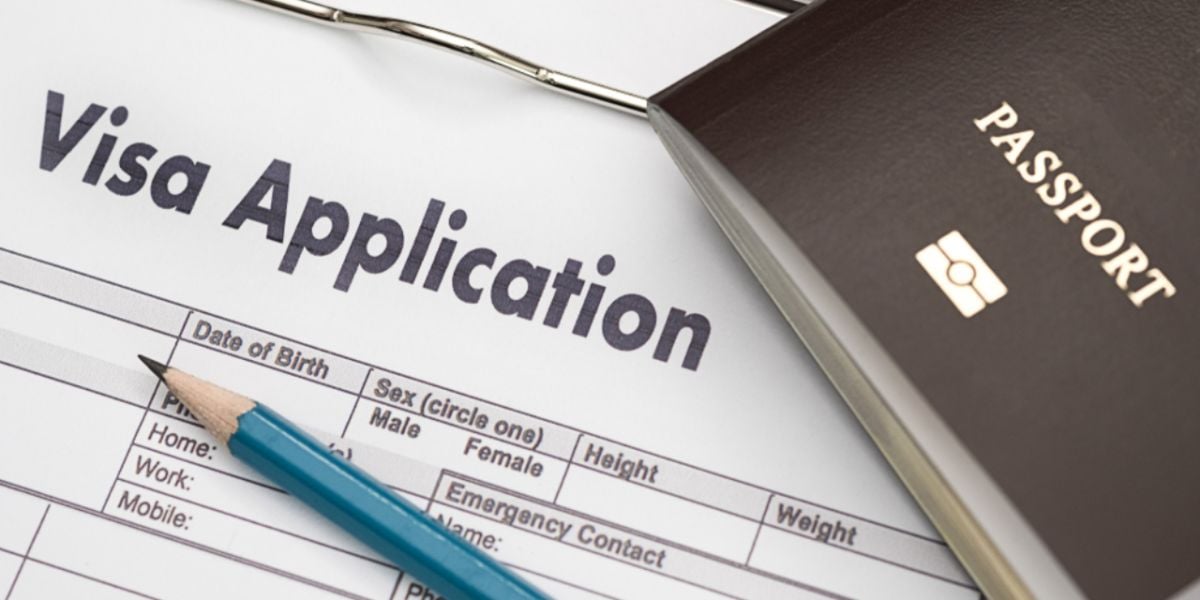
Spain is one of the most visited countries in the world, and people travel to vacation and live there for various reasons. They include gorgeous landscapes, a pleasant climate, a relaxed lifestyle, world-class universities and job opportunities. If you are embarking on a new chapter in your life with plans to live, work, or study in this southwestern European country, you need to know whether or not you require a visa. There are different types depending on your nationality and reason for visiting.
EU-EEA nationals in Spain
EU-EEA nationals have an automatic right to live and work in Spain. However, you must apply for Spanish residency and an NIE (foreigner identity number). You can apply for your NIE at the Spanish embassy in your home country or any National Police station in Spain that handles foreign documentation. You will need:
- A valid passport and photocopies.
- A completed Ex-15 application form which you can download from the Ministry of the Interior's website
- Two passport-sized photos.
- Supporting documents justifying the reason for applying for an NIE.
Visa types in Spain
The principal visa types for Spain are a tourist visa, a work visa, EU Blue Cards, a student visa and a Schengen visa.
Schengen visa
Foreigners not from visa-exempt countries need to obtain a Schengen Visa, the most common visa for Europe. This permits a stay of up to 90 days (in any period of 180 days) for reasons of tourism, business, medical treatment, family business, studies, non-work practices or volunteer activities of less than three months or other non-profit endeavors.
Visa-exempt countries include the 27 member countries of the Schengen Area (all are inside Europe) and the US, Canada, Australia, New Zealand, Brazil, Argentina and Japan. Citizens from all other countries will have to apply for the visa at the Spanish embassy or consulate in their home country.
The basic visa fee is 80 euros per person. However, reduced fees or exempted charges may apply to children and individuals falling within specific categories, depending on their circumstances.
Schengen visa requirements include:
- Completed application form (original and copy)
- Two recent photos taken within three months of filling in the application form
- A valid passport not older than 10 years and valid for at least three months beyond the date you leave the Schengen area
- Travel insurance policy
- Proof you have sufficient finances to support your stay in Spain/Schengen area
- Proof of accommodation in Spain, such as a hostel booking or rental contract
- Some people may require additional documents depending on their employment status. These documents can include an employment contract, pension statement and proof of student enrolment.
Note that from 2024, non-EU citizens from visa-exempt countries will need an ETIAS visa waiver if they want to stay in Spain for up to 90 days in any 180-day period. ETIAS stands for the European Travel Information and Authorisation System. Once approved, the visa waivers are valid for three years, and you can visit the Schengen Area multiple times. The registration process is entirely online.
Work visas in Spain
If you are from a European country, you do not have to obtain a work visa if you plan to live and work in Spain. Everybody else will need to apply for one.
With a long-term visa, you can live, work, research and study in Spain. There are several types of visas for different jobs and lengths of employment. Among the most common are:
Long-term work visas
To work as a highly skilled professional in Spain, non-EU citizens will need to find a job on the Shortage Occupation List. Positions detailed here cannot be filled by a Spanish or EU citizen. If accepted for a job, your employer will launch the visa application process, which you will continue in the Spanish embassy or consulate in your home country.
Seasonal work visas
The Residence and Employment Work Visas -TRA is for people aged 16 or who want to work in Spain and covers seasonal work activities. Applicants must provide evidence that their travel costs are covered, that they have accommodation, and will return to their home country once the job has been completed.
Au pair visas
There is no official au pair program in Spain, but those who want to be an au pair in the country can apply for a student visa if their stay will be more than 90 days.
Among the requirements for a visa are:
- A completed visa application form
- A recent passport-size color photograph
- A valid passport
- Original and copy of the document that proves you´ve been accepted as an au pair
EU Blue Card
This visa is intended for highly skilled non-EU citizens who have spent at least three years completing a higher education qualification or three or more years of high-level professional experience.
Among the key features of an EU Blue Card are:
- Working and salary conditions that are equal to Spanish nationals
- Free movement within the Schengen Area
- Entitlement to some benefits such as unemployment benefits.
Good to know:
The standard validity of an EU Blue Card in Spain is three years.
Other types of long-term visas for Spain include the digital nomad visa, non-lucrative residence visa and golden visas and visa for retirees and pensioners.
Long-term visa application process and requirements in Spain
If you have received a job offer in Spain, your prospective employer will sometimes start the visa application process. In all situations, the person requesting the visa will have to:
- Present a completed application form (original and copy);
- Apply in person at the Spanish embassy or consulate in the individual's home country;
- Have a passport with a minimum validity of 120 days (if you are a student, au pair, seasonal work visa or EU Blue Card holder, your passport must cover the period of your stay);
- Criminal records certificate from your home country;
- A medical certificate stating the applicant does not suffer from any contagious or infectious diseases, mental disorders or drug addiction;
- For work visas, a copy of the "resolución de permiso de trabajo" issued to the prospective employer by the Ministerio de Trabajo y Asuntos Sociales;
- For student visas, applicants have to provide proof of scholarship or grant, if applicable, proof of previous studies, accommodation details, travel insurance for the period of stay in Spain, and evidence of sufficient funds;
- Pay the visa processing fee.
Self-employed and freelance workers in Spain
Non-EU nationals who are self-employed/freelancers will have to apply for a visa at the Spanish embassy or consulate in their home country. Typical requirements include:
- Completed application form
- Evidence of relevant skills and experience
- A business plan, if applicable
- Proof of contracts and/or commissions
- Any required professional licenses
- Proof of sufficient funds to support yourself
Airport transit visa in Spain
This visa entitles the holder to pass through the international transit zone in a Spanish airport.
Nationals of the countries listed below need an airport transit visa to transit to an airport in the Schengen Area (including Spain) to catch a connecting flight to a country outside the area:
Afghanistan, Bangladesh, Democratic Republic of Congo, Eritrea, Ethiopia, Ghana, Iran, Iraq, Nigeria, Pakistan, Somalia and Sri Lank
Nationals of the countries listed below also need a visa to transit any international zone in a Spanish airport to take a connecting flight to a country outside the Schengen Area:
Cameroon, Ivory Coast, Cuba, Democratic Republic of Congo, Djibouti, Gambia, Guinea, Guinea Bissau, India, Liberia, Mali, Sierra Leone, Syria, Togo and Yemen. Holders of passports issued by the Palestine Authority also need visas.
Among the exceptions for citizens of these countries are if they already hold a Schengen visa.
To apply for an airport transit visa, you will need to go to the Spanish embassy or consulate in your home country.
Formalities after entry into Spain
Once you are in the country, there are a couple of formalities that may be necessary:
You may be able to extend a short-term visa if the officially authorized stay is less than 90 days. This has to be done at a police station or aliens office.
If you have been granted a visa to stay for more than six months, you will have to apply for a foreigner identity card (TIE) within one month of your arrival. You can do this at police stations and aliens offices. You do not need to apply for an identity card if you have a visa to carry out seasonal work.
Applying for residency in Spain
If you plan to live in Spain long-term, you will need to apply for a residency permit, of which there are two principal types: temporary or permanent.
A temporary residence permit in Spain is for a stay longer than 90 days and shorter than five years. Authorization for a period not exceeding five years can be renewed regularly.
You can apply for permanent residency in Spain if you have been a temporary resident for five years or more (not including students).
TIE Card in Spain
The TIE card, or the Tarjeta de Identidad de Extranjero, is the new residency document and identification card granting foreigners legal status within the country. It replaces the old system of green A4-size paper residency documents.
So what is a TIE card? A TIE card is a biometric card that contains the identity details of the holder, such as fingerprints, foreigner identity number, photo and date of birth. The TIE card and the paper residency certificate are equally valid, so expats with a green certificate (issued before July 6, 2020) do not need to apply for a TIE card.
The TIE card is issued to non-EU citizens, enabling them to work, study and reside in Spain.
How to obtain a TIE card
You can apply for a TIE Card online. Just log on to the website and follow the details. Alternatively, many lawyers that deal with expats offer a TIE card service. For a fee, they will help you with the form filling and arrange any appointments, such as where to have your fingerprints taken.
Good to know:
You do not need to apply for a TIE card if you registered as a resident before July 6, 2020. However, you can exchange your residence certificate for a card if you want to. There is currently no deadline for doing this.
Registering on the Padron
Once living in Spain, you must register on the Padron. This is a list your local town hall will keep of everyone living in the area. You have to register whether you are a homeowner, tenant, or live with family or friends.
Registration is a straightforward process. Book an appointment with your town hall and fill in the appropriate form when you are there. You will need to bring official identification, such as a passport, NIE card, residence certificate card, deeds of your home or rental contract and a recent utility bill.
The main benefits of signing on the Padron are better public services. The central government allocates funds to municipalities based on the number of people living there. Therefore if you're not signed on, the town hall will lose money that could be spent on providing health services, schools, firefighters, police officers and so on.
Useful links:
Schengen Visa Information
Páginas - Ministerio de Asuntos Exteriores, Unión Europea y Cooperación (Ministry of Foreign Affairs)
We do our best to provide accurate and up to date information. However, if you have noticed any inaccuracies in this article, please let us know in the comments section below.








